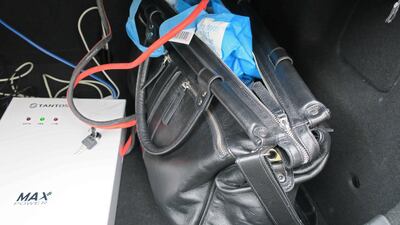A great contest to erode trust between people and their leaders is raging around the world. Proof, if it were needed, lies in the revelations in recent days about Russian hacking and spying activities. The details have triggered a wave of ridicule. It is often said that satire is the sharpest weapon and this is a prime example.
Certainly Vladimir Putin is a perfect target. Since he took over a chaotic, failing state on the eve of the millennium, Mr Putin’s raison d’etre has been to be taken seriously. This is true for himself as a leader, but also for Russia as a great country and an influential presence on the world stage.
How sharp the arrows of laughter must feel in light of this overarching aim. Now, Russian tradecraft has been reduced to pictures of a hired hatchback car in The Hague from which, in April, Russian operatives attempted to hack into the wireless network of the global watchdog the Organization for the Prohibition of Chemical Weapons. Those agents, who were deported by Dutch authorities, were travelling on sequentially numbered passports.
It is not just abroad that Russia’s frailties have appeared. More than 300 agents for the country’s military intelligence have been exposed because have registered their private cars at its headquarters.
This list of Keystone Cops stuff goes on. It is a real-life version of the Johnny English spy series, in which a hapless agent blunders from disaster to disaster.
Of course, there are twists of fortune in the spy game. Twelve years ago, British intelligence services were embarrassed when Russia published pictures of its agents using a fake rock in a Moscow park to download data from palmtop computers.
Six years later, retired British officials reversed their denials and admitted that it had, in fact, happened just as the Russians said.
Eternal truths are exposed by such scandals. In the current case, there is a fuller grasp of the scope of the Kremlin’s intelligence interests. Its targets range from Europe to South America and south-east Asia.
It is also true that Russia was, like most countries that practice full-spectrum espionage, seeking to protect its interests. It wanted information about Syria's use of chemical weapons following the Douma attack in April this year. After the Russian intervention in Syria to shore up the Assad regime, Moscow bore a shared burden of responsibility when its ally committed war crimes.
At a time when Russia’s prestige was also under attack in the global sporting arena, the Russian intelligence agency was relentlessly probing sporting bodies and anti-doping agencies. It was also keen to keep track of the investigation into the shooting down of a Malaysian Airlines plane over Ukraine that killed hundreds of people.
There is some suggestion that the often erratic public utterances of Sergei Lavrov, the Russian foreign minister, on these issues can be sourced in this intelligence. Mr Lavrov can be baffling at times and has, perhaps, fallen into the trap of disinformation.
Intelligence gathering by electronic means is a reality of modern life. The familiar warnings that hotel-lobby wireless access is extremely insecure are confirmed in no uncertain terms by these events. In short, anyone who has ever used internet banking on an open network needs to think very hard about what has happened in the Netherlands.
Hacking is not an exclusively Russian preserve. In the region, Qatar has compounded its poor reputation among its neighbours with its covert online activities. As recent reports in The National show, it has exploited commonly used platforms, such as TinyUrl, as gateways to proprietary information. No wonder there was no small amount of disgust expressed on the sidelines of the UN General Assembly when the Qatari Emir Sheikh Tamim bin Hamad Al Thani promised to hold an international conference on hacking and cyberwarfare.
Iran is also a massive force in electronic espionage. The upcoming release of a new movie and book about the life of Marie Colvin, the American journalist killed by a Syrian rocket attack in Homs in 2012, will no doubt provide a reminder that Iran provided the technology that allowed the Assad regime to break into her satellite phone signal to provide its target.
The country doing the most to push the technological boundaries of hacking, however, is China. A rare glimpse of just how sophisticated Beijing’s methods of data gathering are was provided this week by reports that it has planted tiny surveillance chips into servers used by such major companies as Apple and Amazon.
China is the workshop of the world. It produces a vast proportion of the computers and handheld devices used all around the world. Tradeable shares in Chinese manufacturers, such as Lenovo, fell by double-digit percentage points on Friday after the allegations of infiltration of the manufacturing chain by the country's government. Harvesting huge amounts of data gives China a reach beyond the imagination of its rivals, including Russia.
There is no satire that can be deployed as defence against that kind of capability.

